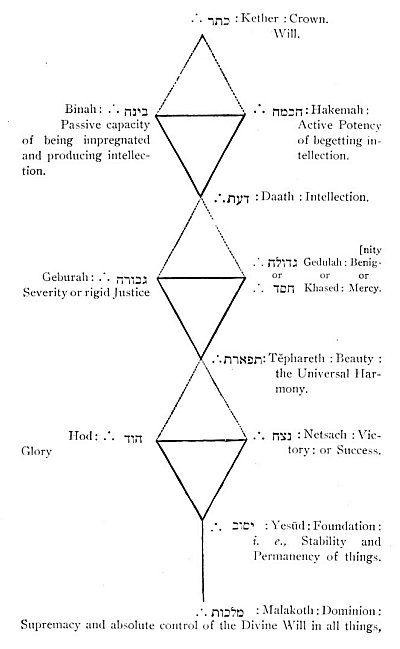In the narrative of the Fall we have the Hebrew mode of explaining the great moral mystery, the origin of evil and the apparent estrangement from Heaven; and a similar idea, variously modified, obtained in all the ancient creeds. Everywhere, man had at the beginning been innocent and happy, and had lapsed, by temptation and his own weakness, from his first estate. Thus was accounted for the presumed connection of increase of knowledge with increase of misery, and, in particular, the great penalty of death was reconciled with Divine Justice. Subordinate to these greater points were the questions, Why is the earth covered with thorns and weeds? whence the origin of clothing, of sexual shame and passion? whence the infliction of labor, and how to justify the degraded condition of woman in the East, or account for the loathing so generally felt toward the Serpent Tribe?
The hypothesis of a fall, required under some of its modifications in all systems, to account for the apparent imperfection in the work of a Perfect Being, was, in Eastern philosophy, the unavoidable accompaniment and condition of limited or individual existence; since the Soul, considered as a fragment of the Universal Mind, might be said to have lapsed from its pre-eminence when parted from its source, and ceasing to form part of integral perfection. The theory of its reunion was correspondent to the assumed cause of its degradation. To reach its prior condition,
p. 686
its individuality must cease; it must be emancipated by re-absorption into the Infinite, the consummation of all things in God, to be promoted by human effort in spiritual meditation or self-mortification, and completed in the magical transformation of death.
And as man had fallen, so it was held that the Angels of Evil had, from their first estate, to which, like men, they were, in God’s good time, to be restored, and the reign of evil was then to cease forever. To this great result all the Ancient Theologies point; and thus they all endeavored to reconcile the existence of Sin and Evil with the perfect and undeniable wisdom and beneficence of God.
With man’s exercise of thought are inseparably connected freedom and responsibility. Man assumes his proper rank as a moral agent, when with a sense of the limitations of his nature arise the consciousness of freedom, and of the obligations accompanying its exercise, the sense of duty and of the capacity to perform it. To suppose that man ever imagined himself not to be a free agent until he had argued himself into that belief, would be to suppose that he was in that below the brutes; for he, like them, is conscious of his freedom to act. Experience alone teaches him that this freedom of action is limited and controlled; and when what is outward to him restrains and limits this freedom of action, he instinctively rebels against it as a wrong. The rule of duty and the materials of experience are derived from an acquaintance with the conditions of the external world, in which the faculties are exerted; and thus the problem of man involves those of Nature and God. Our freedom, we learn by experience, is determined by an agency external to us; our happiness is intimately dependent on the relations of the outward World, and on the moral character of its Ruler.
Then at once arises this problem: The God of Nature must be One, and His character cannot be suspected to be other than good. Whence, then, came the evil, the consciousness of which must invariably have preceded or accompanied man’s moral development? On this subject human opinion has ebbed and flowed between two contradictory extremes, one of which seems inconsistent with God’s Omnipotence, and the other with His beneficence. If God, it was said, is perfectly wise and good, evil must arise from some independent and hostile principle: if, on the other hand, all agencies are subordinate to One, it is difficult, if evil does indeed exist,
p. 687
if there is any such thing as Evil, to avoid the impiety of making God the Author of it.
The recognition of a moral and physical dualism in nature was adverse to the doctrine of Divine Unity. Many of the Ancients thought it absurd to imagine one Supreme Being, like Homer’s Jove, distributing good and evil out of two urns. They therefore substituted, as we have seen, the doctrine of two distinct and eternal principles; some making the cause of evil to be the inherent imperfection of matter and the flesh, without explaining how God was not the cause of that; while others personified the required agency, and fancifully invented an Evil Principle, the question of whose origin indeed involved all the difficulty of the original problem, but whose existence, if once taken for granted, was sufficient as a popular solution of the mystery; the difficulty being supposed no longer to exist when pushed a step further off, as the difficulty of conceiving the world upheld by an elephant was supposed to be got rid of when it was said that the elephant was supported by a tortoise.

Moe is the founder of GnosticWarrior.com. He is a father, husband, author, martial arts black belt, and an expert in Gnosticism, the occult, and esotericism.





